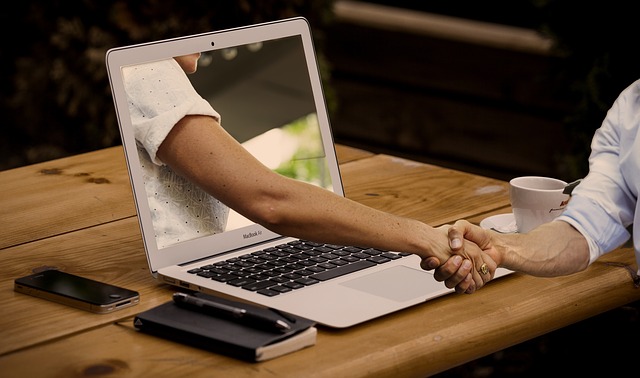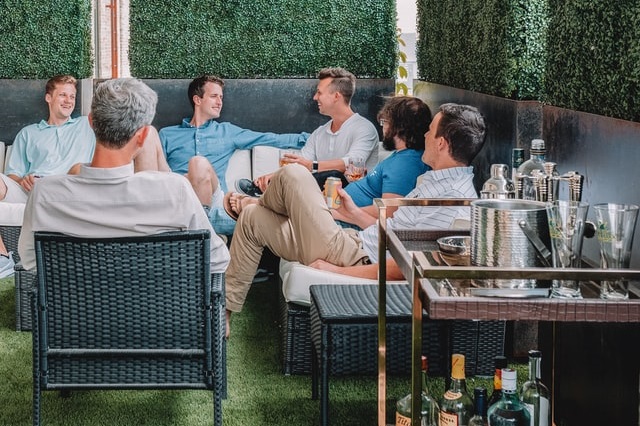Occasionally I try to remember what life was like back when we had no mobile phones, no email, no social media, no internet, and no home computers.
Don’t worry, this isn’t going to be one of those “back in the good old days” rants. And it’s not going to be a screed about how Facebook and other social media platforms, texting, selfies, junk journalism, and the internet as a whole have led to the decline of civilization. (That’s Twitter’s fault.)
When I think back to my high school and college years (the 1970s) and my young adult years (the 1980s), I belonged to numerous groups and had a rich assortment of friends. Somehow, by non-digital means, the people in those groups communicated and coordinated their activities and schedules. People paid attention while announcements were being made. Upcoming events and relevant information were written down, photocopied, and either passed out at meetings/rehearsals or mailed. People made phone calls only from their home or office, using landlines. People memorized commonly-called numbers and stored the rest in a little booklet or a day planner. Somehow, we made it work and these groups operated smoothly.
People maintained their friendships by talking on the phone, getting together informally, and having small gatherings and parties. Belonging to groups was more common. Everything happened in person or via phone conversations. People sent cards to convey birthday wishes, sympathy, congratulations, or get-well wishes, and at Christmas.
Somehow, we survived and even thrived in those primitive times. And I seem to recall being happy.
It’s funny that at one time early in my career, when home computers were first becoming a thing, I told other people that after spending much of my time at work in front of a computer, the last thing I wanted to do when I got home was to spend more time in front of a computer.
Today, my computer is perhaps my most prized possession. Seriously, if my house was burning down and I could only carry out one thing, it would be my computer (and hopefully a couple of my external hard drives). So much of my life is stored on it.
Virtually everything I do revolves around my computer to a large extent, whether it’s communicating, writing, reading, enjoying music, maintaining websites, making purchases, researching information, reading news, or engaging in various forms of entertainment. I spend a good portion of each day in front of screens. (I love my dual monitors!)
I am amazed at the capabilities of the modern smartphone, and how much functionality, computing power, and storage is available in such a small device. It’s a camera, a music player, and a miniature computer terminal. You can get directions, do banking, order food, read books, watch videos, send and receive messages, and countless other things. Vast amounts of information are available at your fingertips or with a voice command. Oh, and it’s also a telephone, although people don’t often use it for that.
I am saddened when I see so many people constantly focused on their phones while ignoring the humans and the external world they are surrounded by.
While there are many wonderful benefits and advancements that the modern computer and smartphone have delivered, there are other ways in which they have detracted from my overall quality of life.
For one thing, many of the diversions our devices and the internet have to offer are huge time wasters.
For another, we suffer from information overload. And much of that information is negative, trivial, and often completely wrong.
For me, the biggest consequence has been the decrease in genuine human interaction.
As I write this, I have 620 “friends” on Facebook. I am grateful to have reconnected with people from past chapters of my life, especially high school. Some are people I have met on vacations, while others are people I have met in organizations or at parties. I am friends with a few people I have never met in real life but with whom I’ve established a friend-like relationship over the course of many years. We’re sort of like modern-day pen pals.
And while these Facebook friendships are enjoyable to various extents, they all lack something important: closeness. I rarely or never have actual human contact with at least 80% of these people (and that was before the COVID pandemic). There’s no depth, only vast shallowness. To be clear, I’m not saying the people are shallow; it’s the connections that are shallow.
For all the ways we are supposedly “connected” more than ever, the truth is that we are genuinely connected less.
I get together with actual people less than ever.
People seldom talk on the phone; they post on social media or send private messages.
People rarely send cards.
Even email has fallen out of favor as a communication tool, let alone actual letters. Most texts, tweets, or social media posts are trivial and banal. It’s empty-calorie snack food, not a nourishing, satisfying meal.
I crave more quality human interaction. I want to see live faces and have more real-time conversation. Granted, the pandemic makes that more challenging, but this too shall pass. Zoom, Skype, Facetime, telephone, and email will do fine for now.
I would rather have a close-knit circle of 10 or 20 genuine friends that I can enjoy meaningful interaction with than 620 “friends” on Facebook.
Starting now, I am minimizing my interaction with Facebook. I could close my account completely, but that’s impractical because the groups I belong to communicate via Facebook and that’s how most people issue invitations to parties and more casual get-togethers. I will log on a couple times a day to check for notifications, but that’s it.
I realize that I have done my share of posting humor, political opinions, and other bits of frivolity. And admittedly, I use Facebook to promote concerts for the bands I’m in and articles and books I have written. I realize that others probably find what I post to be just as junky as what many others post. But no more.
I am going to try hard to reach out to people I care about more often and initiate getting together or having phone calls or video chats. Hopefully they will be open to engaging in this kind of deeper, more substantial friendship. If not – well, at least I tried.
I am also going to do my best to pull away from my computer more for other pursuits, too – like sitting with an actual book or getting outdoors more.
Each new technological advance has added value to our lives in some ways and has detracted from the quality of our lives in others, which usually go unnoticed.
It’s up to each of us to make a thoughtful and purposeful determination of what we want our lives to be like. Then we can evaluate whether each device, social media platform, and app contributes to the quality of our life or detracts from it, and act accordingly.
Someday, in as little as ten years, today’s devices, apps, and communication tools will all be replaced by slicker, more advanced things. In the future, today’s technology will seem as primitive as landline telephones, television broadcast over airwaves, and letters mailed through the post office seem now. Maybe we’ll experience more of the world through virtual reality goggles, “see” distant people as hologram images, and have implanted devices. Each new technological advance will bring its own advantages, but hopefully not at the expense of further diminished humanity.
Whatever wonderful things may come; I know one thing for sure. I’ll still want a hug.
© 2020 Dave Hughes. All rights reserved.
Photo credits:
Man in cave: -MQ-
Desk: Dave Hughes
Laptop handshake: Gerd Altmann
Men talking: Austin Distel
VR goggles: Jan Vasek








